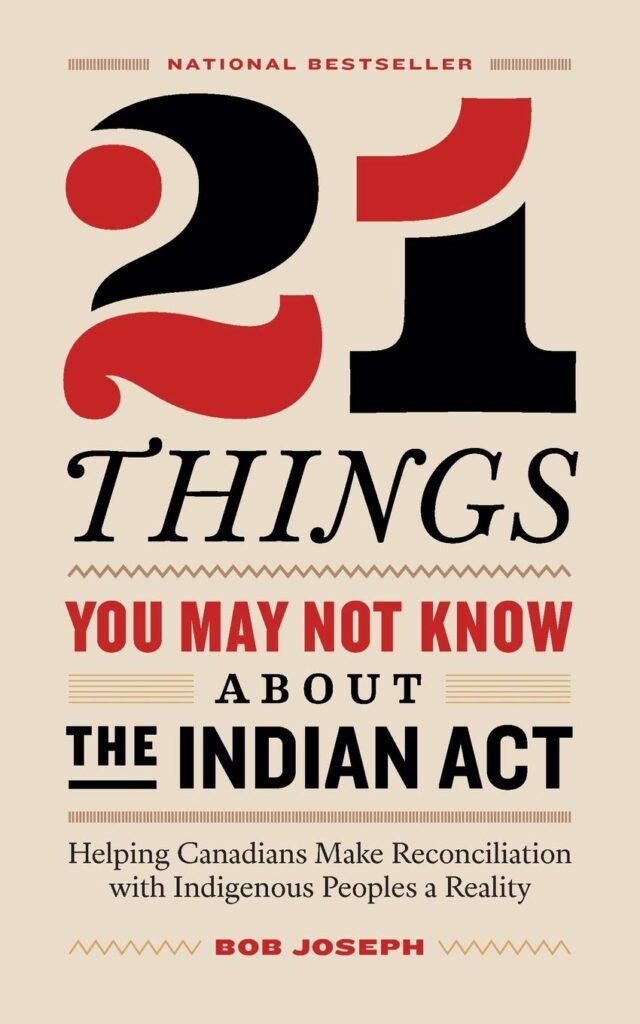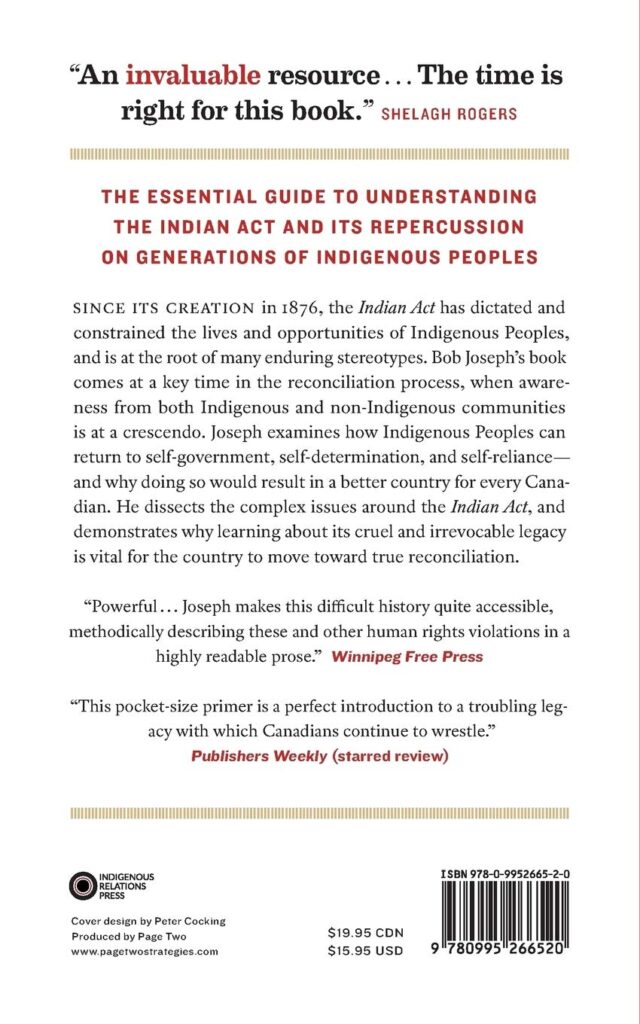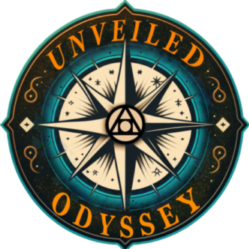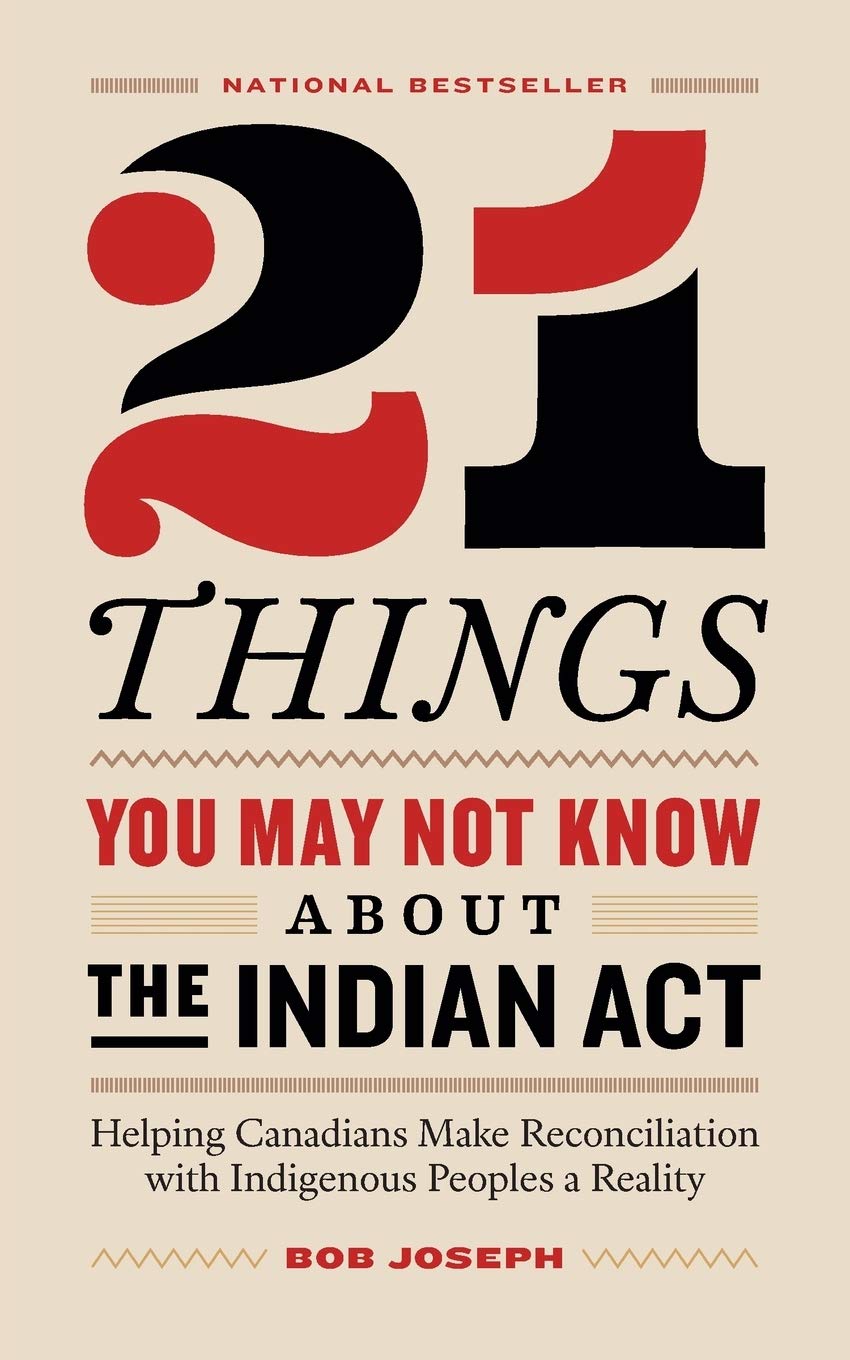
Title: 21 Things You May Not Know About the Indian Act
Author: Bob Joseph
Genre: First Nations
“21 Things You May Not Know About the Indian Act: Helping Canadians Make Reconciliation with Indigenous Peoples a Reality” by Bob Joseph is a powerful and enlightening book that delves into the complexities of the Indian Act, an integral piece of legislation in Canadian history. Through 21 well-researched chapters, the author aims to educate readers about the Act’s far-reaching impacts on Indigenous communities and promote reconciliation between Indigenous peoples and Canadians.
Joseph’s analysis comprehensively examines the Indian Act, providing deeper insights into its historical context, intentions, and consequences. He dissects various aspects of the Act, highlighting its role in perpetuating cultural genocide, eroding Indigenous sovereignty, and exacerbating systemic inequalities. The author’s writing style is engaging and accessible, effectively blending historical facts, personal anecdotes, and powerful storytelling to keep readers engrossed throughout. This engaging approach educates and prompts readers to reflect on their role in reconciliation and take action.

The book provides valuable insights into the multifaceted challenges Indigenous communities face in Canada. Through personal stories, historical context, and statistical data, Joseph unveils the long-lasting impacts of the Indian Act. Topics such as residential schools, land rights, and the concept of “status Indians” are explored, shedding light on Indigenous peoples’ ongoing struggles and resilience. By examining these issues, the book equips readers with the knowledge necessary to engage in meaningful dialogue and contribute to the reconciliation process.
A significant strength of the book is its focus on reconciliation and the steps needed to achieve it. Joseph emphasizes the importance of acknowledging historical injustices, challenging misconceptions, and embracing a collective responsibility for change. By presenting historical truths and encouraging Canadians to confront uncomfortable realities, the book acts as a catalyst for understanding and empathy. Joseph’s approach invites readers to reflect on their own biases, assumptions, and privileges, ultimately fostering a more inclusive and reconciliatory society.

While “21 Things You May Not Know About the Indian Act” is highly informative and engaging, it could benefit from further exploration of current initiatives and progress toward reconciliation. Including more recent case studies or examples of successful reconciliation efforts would enhance the book’s relevance to current discussions and demonstrate the potential for positive change.
In conclusion, “21 Things You May Not Know About the Indian Act” is an excellent book that educates, challenges, and inspires readers to engage in reconciliation efforts. Bob Joseph’s meticulous analysis, engaging writing style, and valuable insights make it an essential resource for anyone seeking a deeper understanding of Indigenous issues in Canada. By promoting empathy, understanding, and collective action, this book serves as a stepping stone towards a more just and reconciled society.



Leave a Reply